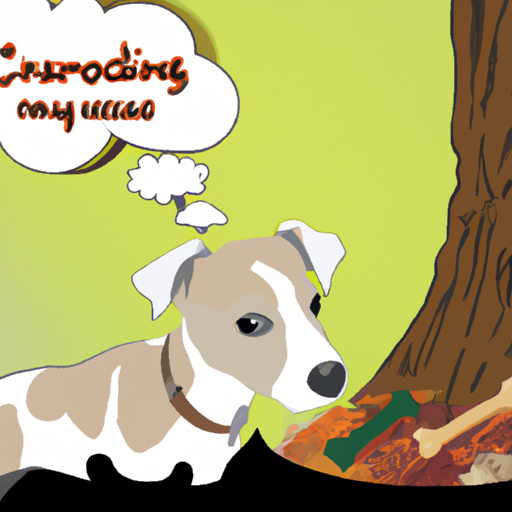Understanding your beloved pet’s behavior is a journey that carries both emotions and mysteries. One such enigma is: Why do dogs eat bark? Let’s delve into this subject and satisfy your curiosity.
1. Understanding the Canine Psyche
Dogs, much like humans, have their own unique personalities and behaviors. However, some actions are driven by instinct and their wild ancestry. Eating bark can be one such behavior.
Dogs are natural explorers. They use their mouth as a tool to explore their environment, much like how you use your hands. Biting or chewing on things like bark allows them to gather information about their surroundings.
The act of eating bark can also be linked to the dog’s instinct to find nutrients. In the wild, their relatives, wolves, often eat bark and other plant materials to supplement their diet. This behavior might have been passed down to our domesticated friends.
2. Nutritional Needs and Deficiencies
Sometimes, your dog’s diet might be lacking certain nutrients, causing them to seek alternative sources, like bark. This behavior is known as ‘pica’ and is common among dogs.
Here’s a table to illustrate some common deficiencies:
| Deficiency | Symptoms | Possible Sources |
|---|---|---|
| Fiber | Changes in appetite, constipation | Bark, grass, vegetables |
| Minerals | Fatigue, weak bones | Bark, bones, rocks |
If you notice your dog frequently eating bark or other non-food items, it might indicate a dietary deficiency. It’s best to consult with a vet to ensure their nutritional needs are being met.
3. Boredom and Anxiety
Dogs are energetic creatures. If they are not given enough physical and mental stimulation, they might resort to destructive behaviors such as chewing or eating bark. This is their way of entertaining themselves or releasing pent-up energy.
Similarly, dogs suffering from anxiety might eat bark as a way of coping. In both cases, providing toys, exercise, and attention can deter them from this behavior.
4. Dental Issues
Much like teething babies, puppies might chew on bark to relieve the discomfort of growing new teeth. Even adult dogs might do this to clean their teeth or soothe gum discomfort.
However, excessive chewing could indicate dental issues. If you observe any changes in your dog’s eating habits, it’s always a good idea to schedule a dental check-up.
5. When to Seek Help
While occasional bark eating might not be a cause for concern, frequent or obsessive behavior could indicate underlying issues. Always keep an eye out for signs of distress, such as changes in behavior, physical discomfort, or changes in appetite or stool. If you’re ever in doubt, don’t hesitate to contact a vet. Your dog’s health and well-being should always be the top priority.
FAQ
Q: My dog eats bark occasionally, should I be worried?
A: Not necessarily. Occasional bark eating is usually harmless. However, if it becomes a regular habit, it’s best to consult a vet.
Q: Can eating bark harm my dog?
A: While the bark itself is usually not harmful, it might cause choking or blockage if ingested in large amounts. Also, some trees are toxic to dogs. Always supervise your pet while they’re exploring.
Q: How can I stop my dog from eating bark?
A: Providing enough mental and physical stimulation can help. Also, ensure their diet fulfills their nutritional needs. If the behavior persists, consider seeking professional help.
In conclusion, while your dog’s habit of eating bark might seem strange, it’s usually not a cause for concern. However, as their caregiver, it’s always important to stay vigilant and attentive to their needs.



